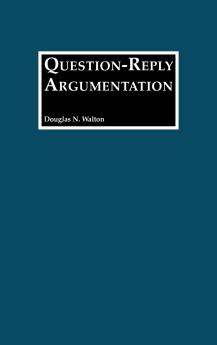This Book is Out of Stock!
English
Hardback
₹7071
₹8075
12.43% OFF
(All inclusive*)
Delivery Options
*COD & Shipping Charges may apply on certain items.
Review final details at checkout.
Looking to place a bulk order? SUBMIT DETAILS
About The Book
Description
Author
Walton''s book is a study of several fallacies in informal logic. Focusing on question-answer dialogues and committed to a pragmatic rather than a semantic approach he attempts to generate criteria for evaluating good and bad questions and answers. The book contains a discussion of such well-recognized fallacies as many questions black-or-white questions loaded questions circular arguments question-begging assertions and epithets ad hominem and tu quoque arguments ignoratio elenchi and replying to a question with a question. In addition Walton develops several artificial dialogue games and has an excellent discussion of burden of proof in nonlegal contexts. The discussion is for the most part nontechnical and does not presuppose any training in formal logic. It is illustrated with many (sometimes overlong) examples of fallacies drawn from real life--mostly debates in the Canadian House of Commons. . . . Walton''s book breaks new ground on a number of issues. ChoiceThis first full-length study of logical fallacies errors faults illicit attacks blunders and other critical deficiencies in interrogation and reply has been written in the tradition of informal fallacies in logic. It is especially valuable readable and interesting because of the 139 case studies it presents many of these case studies come from political debates and some from interviews legal cross-examinations and other sources. Walton uses these challenging examples of tricky aggressive argumentative or fallacious questions to develop coherent and pragmatic guidelines for criticizing questionable questions (and in some cases their replies) on logical grounds. Among the types of problematic questions analyzed are: the traditional so-called fallacy of many questions illustrated by the famous Have you stopped beating your wife?; black and white questions; terminologically loaded questions; and questions containing personal attacks. These and other types of problematic questions as well as evasive replies and replying to a question with a question are studied. Critical errors of reasoning are identified and analyzed by developing context-based normative models of reasonable dialogue in which a questioner must have freedom to ask informative and probing questions and the respondent must be constrained to give reasonably direct not overly evasive answers this era of negative and evasive political campaigning with candidates employing skillful tactics of manipulating public opinion to assure election rather than taking clear stands and seriously debating issues in an informed and sincere manner Question-Reply Argumentation is especially relevant reading for those who take democracy seriously. The methods used reflect a significant shift from earlier semantically based theories to current pragmatic dialogue-based models and will be of interest to logicians and linguists. The volume''s conclusions should challenge some current preconceptions. Recommended reading for courses in logic speech communications linguistics philosophy of language areas of political science relating to political discourse and debate courses on questioning in cognitive psychology and courses on critical thinking in education.
*COD & Shipping Charges may apply on certain items.
Review final details at checkout.
₹7071
₹8075
12% OFF
Hardback
Out Of Stock
All inclusive*
Details
ISBN 13
9780313267895
Publication Date
-09-11-1989
Pages
-428
Weight
-697 grams
Dimensions
-156x234x23.81 mm








